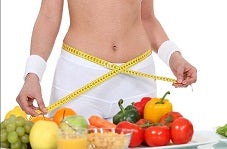How To Deal With Constipation And Incontinence Naturally
 0
0
 2015-10-07
2015-10-07

Though something that is experienced more amongst the elderly, both constipation and incontinence are common enough amongst the general population. They aren't exactly problems one would like to talk about and they do cause a fair bit of embarrassment. They are however serious problems that must be dealt with quickly.
Most cases of the both conditions resolve independently and swiftly, though they might cause some severe discomfort and embarrassment. There are many things you can do to ease the time frame of the experience and like always, nature comes to the rescue with many excellent solutions. They aren't magic pills and won't instantly cure you of your problem, but they will slowly reverse the condition and improve the overall quality of your bowel movements. As such, they should be tried.
In this article, we'll be looking at both constipation and incontinence, what might cause them, and the general diet pattern that will prevent either condition from occurring. So, without any more delay, let's have a look at these pesky ailments.
Constipation
Constipation isn’t so much an illness itself as it is a reaction to poor eating habits. If you’re having trouble passing your digested food and/or pass irregularly, then you must seriously reconsider what you put on your plate.
What causes constipation? The causes for it range from a lack of fiber in the diet to poor posture during the bowel movement. You’re also at risk of developing constipation if you don’t drink enough water and it has been learnt that mental health conditions like depression and anxiety also contribute towards the occurrence of constipation. Medication can also cause constipation, including health supplements.
As you can see, there are many things that dictate whether you’ll suffer from constipation. It is therefore important that you focus on living as healthily as possible in order to prevent constipation from occurring. Here are a few things you should be eating and doing to prevent constipation:
- Eat Fiber
Fiber is well known as an aid to digestion, and it helps get rid of constipation. It is recommended to take between 30 to 50 grams of fiber every day, and a cup or two of oatmeal will cover this requirement. You can also try Brown Rice for your fiber needs.
- Drink Water
Water smoothens your bowel movements and gives some moisture to the material, making the exit process easier for your body. Make sure you get enough water in every day.
- Exercise
Exercising is also important for break-free bowel movements. A decent workout a few times a week encourages your body’s internal systems to work more, so it encourages bowel movements.
Incontinence
Then at the other end, we have incontinence, which contains its own embarrassments. Like constipation, incontinence is also something that is more likely to occur with age. After years and years of use, our digestive system starts flagging a bit.
Incontinence is simply when our bladder releases urine, or our bowels solid matter, involuntarily. The causes for incontinence vary and this is why in some cases it can be treated and in others managed. They can be categorized as those that come naturally with age and physical states and those that are external stimuli. Aging, pregnancy, menopause, and some surgeries can all spark urinary incontinence. On the other hand, drinking too much decaffeinated coffee and corn syrup can also cause incontinence. It’s important to determine the cause, so consult a doctor.
If you do suffer from incontinence, incorporate the following into your diet:
- Magnesium
The Tel Aviv University in Israel discovered that women who were given Magnesium Pills experienced less incontinence. So consider taking some today!
- Drink The Right Amount Of Water
Too much water will stress you bladder too much and too little water will leave your urine concentrated, affecting your bladder. Drink just the right amount of water to keep your bladder healthy.
Never start yourself on any treatment, natural or allopathic, without the consultation of a doctor. Both constipation and incontinence can be a sign of something far worse and any serious case of either must be divulged to a trained medical professional first. Hopefully, it won't be something serious and if you're given the green light by the doctor, try some of the solutions listed here.

 Joybynature.com Team
Joybynature.com Team


